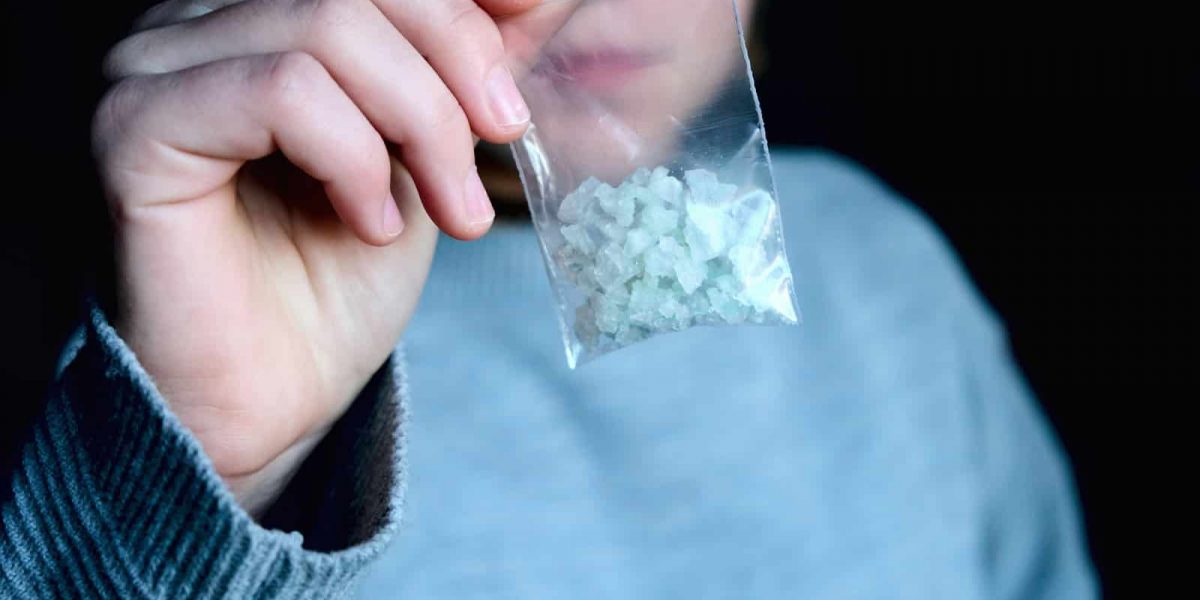Begin Your Journey
The help you need is just a step away. Contact us today to learn more about our treatment options.
It is possible and highly dangerous to overdose on cocaine. The most common reason that a cocaine overdose occurs is due to taking too much cocaine, taking too concentrated a dose of cocaine, or mixing cocaine with other drugs.
A cocaine overdose can result in a heart attack, stroke, seizure, and death. If you suspect you or a loved one is experiencing a cocaine overdose, seek emergency medical treatment immediately by calling 911.
Cocaine is an addictive, illegal stimulant drug made from the leaves of the Coca plant found in South America.[1] It affects a person’s central nervous system, causing the brain to release higher-than-normal amounts of chemicals into the body (including dopamine, serotonin, and norepinephrine).
Cocaine is available in two primary forms: a water-soluble hydrochloride salt and a water-insoluble cocaine base, known as freebase. The hydrochloride salt form can be snorted or dissolved in water and injected, while the freebase form, which does not dissolve in water, is typically smoked. Cocaine Injected intravenously enters the bloodstream the quickest, increasing the effects felt. Smoking is the second fastest way to have cocaine enter the bloodstream, followed by snorting or rubbing the cocaine on one’s gums.
All ways of administering cocaine can result in lethal overdose side effects of heart attacks, strokes, seizures, and death.
Some people use cocaine recreationally or occasionally, while others use it regularly and compulsively.
Using cocaine typically results in feelings of euphoria and a high; however, excessive use can lead to cocaine intoxication, characterized by severe impairment and adverse physical symptoms. Reasons for cocaine intoxication or overdose include [2]
The risk of overdose with cocaine is high due to its unknown potency to the user, and cocaine users need higher doses of the drug to experience a high the more they use.
Symptoms of cocaine intoxication include [3]
A cocaine overdose involves severe, life-threatening side effects that require medical attention immediately. [4]
Amanda Stevens is a highly respected figure in the field of medical content writing, with a specific focus on eating disorders and addiction treatment. Amanda earned a Bachelor of Science degree in Social Work from Purdue University, graduating Magna Cum Laude, which serves as a strong educational foundation for her contributions.
Read moreThe help you need is just a step away. Contact us today to learn more about our treatment options.

Seek emergency medical attention immediately if you believe someone is experiencing an overdose of cocaine.[5] Call 911 – a cocaine overdose can be fatal and requires immediate medical attention.
Most states have enacted Good Samaritan Laws as a way to prevent drug overdoses.[6] In the past, people were reluctant to call for help if they or someone they were with was experiencing an overdose for fear of criminal prosecution. Good Samaritan Laws protect the person who calls for medical help and those who need medical help from criminal charges. Saving someone’s life is the priority.
Things to be aware of while you wait for emergency medical services to arrive:

Emergency department treatment for a cocaine overdose includes monitoring the person’s vital signs: temperature, pulse, breathing, and blood pressure. Treating symptoms as needed, including [8]
Long-term treatment for cocaine addiction and overdose includes substance abuse treatment, mental health counseling, and possibly medical treatments should the person experience long-term health conditions due to cocaine use.[9] There is no medication approved by the Food and Drug Administration to treat cocaine addiction.

Cocaine is a dangerous stimulant due to its high potential for overdose and death. As soon as a person can enter recovery from cocaine, the less likely they are to experience long-term physical and mental health consequences. Seeking treatment also reduces one’s risk of death, accidents, and arrests.
If a person is experiencing a cocaine overdose, they need emergency medical treatment immediately. Once they are medically stable, treatment options that may involve inpatient or outpatient treatment can be explored. Cocaine addiction treatment is paid for by many insurance companies.
Drug overdose deaths in the United States have risen significantly. In 2015, there were 6,784 cocaine-related deaths, which rose to 15,883 in 2019 and then to 24,486 in 2021. Cocaine-involved deaths rose nearly 54% between 2019 and 2021.[10]
Other health problems related to a cocaine overdose include [11]
Substance use disorder treatment for cocaine addiction involves behavioral health treatment, which may be done in inpatient or outpatient programs, depending on the person’s needs. If the person is at high risk of relapse or in need of detox treatment, residential treatment may be best for them.
Many treatment programs use Contingency Management or Cognitive Behavioral Therapy as part of their addiction treatment. [12]
Contingency Management programs provide vouchers as a reward system for those who have abstained from cocaine use that can be used toward prizes, cash, or other rewards.
Cognitive Behavioral Therapy teaches people skills that support abstinence. CBT teaches individuals how to identify situations where they are most likely to relapse and use cocaine, how to avoid those situations, and how to cope with life problems that may have previously caused them to turn to cocaine use.
Signs of cocaine use may include [13]
Cocaine is a white powder that people typically inhale, rub on their gums, or dissolve in water and inject. It is not commonly smoked in its powder form because it burns at a high temperature, which destroys much of the drug; instead, it is the base form of cocaine, known as crack cocaine, that is commonly smoked. The high lasts twenty minutes to two hours.
Crack cocaine is processed cocaine into small brown rocks that people smoke with a glass pipe or mix with other drugs such as tobacco or marijuana. When processed, it makes a crackling noise, which is how it got its name.[14] The high lasts fifteen minutes.
While the high from cocaine and crack cocaine is brief, it can stay in one’s system for up to three days.
[1,12] NIDA (2024). Cocaine. Retrieved from https://nida.nih.gov/research-topics/cocaine on April 19, 2024.
[2, 3,4,8,9] Medlineplus.gov (2023). Cocaine Intoxication. Retrieved from https://medlineplus.gov/ency/article/000946.htm on April 19, 2024.
[5] SAMHSA (2018). Opioid Overdose Prevention TOOLKIT: Five Essential Steps for First Responders. Retrieved from
https://store.samhsa.gov/sites/default/files/five-essential-steps-for-first-responders.pdf on April 19, 2024.
[6] GAO (2021). Drug Misuse: Most States Have Good Samaritan Laws and Research Indicates They May Have Positive Effects. U.S. Government Accountability Office. Retrieved from https://www.gao.gov/products/gao-21-248 on April19, 2024
[7,10] NIDA.gov (2023). Drug Overdose Death Rates. Retrieved from
https://nida.nih.gov/research-topics/trends-statistics/overdose-death-rates on April 19, 2024.
[11] Richards, J.R., Le, J.K. (2023) Cocaine Toxicity. In: StatPearls [Internet]. Treasure Island (FL): StatPearls Publishing. Retrieved from https://www.ncbi.nlm.nih.gov/books/NBK430976/ on April 19, 2024.
[13] NARCANON (n.d.) Signs and Symptoms of Cocaine Use. Retrieved from https://www.narconon.org/drug-abuse/signs-symptoms-cocaine-use.html on April 25, 2024.
[14] Cleveland Clinic (2023). Cocaine (Crack). Retrieved from https://my.clevelandclinic.org/health/articles/4038-cocaine-crack on April 25, 2024.
© 2025 SOBA New Jersey. All Rights Reserved.
SEO by DIGITECH
If you are ready to take the first step toward a new life free from substances, we are here to answer any questions and help you begin your recovery journey.
© All Rights Reserved 2025. Soba New Jersey. SEO by DIGITECH .
(888) 229-7989